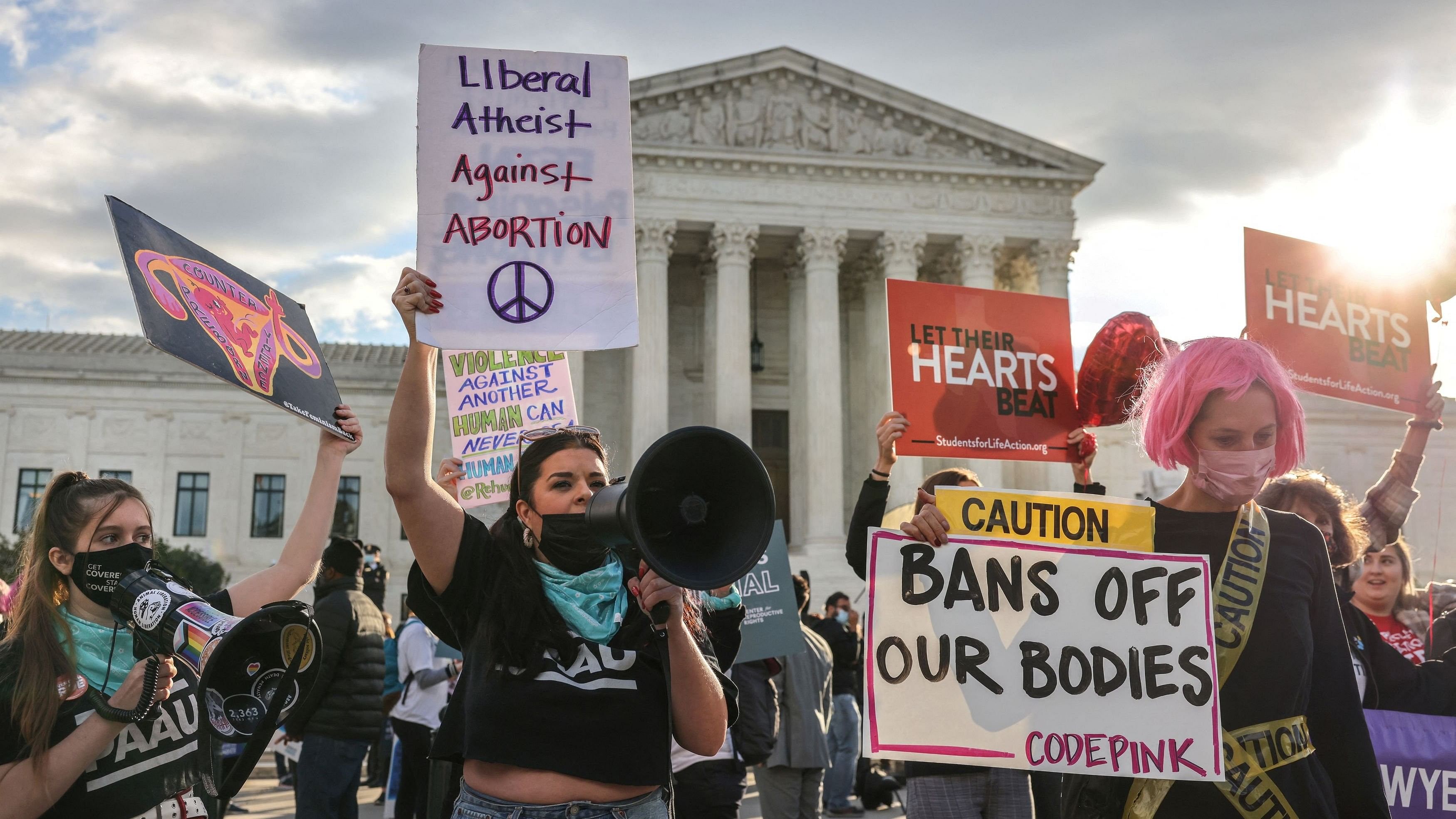
Pro-choice and anti-abortion both demonstrate outside the United States Supreme Court as the court hears arguments over a challenge to a Texas law that bans abortion after six weeks in Washington, US.
Credit: Reuters Photo
Texas has sued to block federal rules that prohibit investigators from viewing the medical records of women who travel out of state to seek abortions where the procedure is legal.
The lawsuit, filed Wednesday in US District Court in Lubbock, targets medical privacy regulations that were issued in 2000, and takes aim at a rule issued in April that specifically bans disclosing medical records for criminal or civil investigations into "the mere act of seeking, obtaining, providing or facilitating reproductive health care."
Texas bans abortions in almost all circumstances. Women are not subject to criminal prosecution for obtaining abortions, but state law imposes penalties of as much as life in prison for those who aid in obtaining abortions.
The lawsuit claims that the privacy rules ignore federal law that lets states view medical records "for law enforcement purposes".
In a statement Wednesday, Texas Attorney General Ken Paxton called the April rule "a backdoor attempt at weakening Texas' laws." He added, "The Biden administration's motive is clear: to subvert lawful state investigations on issues that the courts have said the states may investigate."
Officials with the federal Health and Human Services Department did not comment on the lawsuit but told The Associated Press that the Biden administration "remains committed to protecting reproductive health privacy and ensuring that no woman's medical records are used against her."
The April regulation came in direct response to abortion bans enacted by many Republican state legislatures after the Supreme Court overturned Roe v. Wade in 2022. A number of those states, including Texas and Alabama, have signaled their interest in extending those bans to include women who cross state lines to get an abortion.
The lawsuit filed Wednesday also asserts that the rule covers "hormone and drug therapy for gender dysphoria, surgical procedures related to gender dysphoria, and gender experimentation." Texas bars minors from obtaining gender-transition surgery and related care like hormone therapy.
Whether Texas investigators have sought records of women who traveled out of state for abortions is unclear. But Paxton, a Republican, has demanded records on gender-transition care from organizations in Washington state and Georgia. In March, a judge temporarily blocked Paxton from forcing an LGBTQ+ organisation to turn over documents.
The Texas lawsuit could set off a protracted legal battle over both abortion and medical privacy rules. In June, the Supreme Court overturned decades of legal precedent that gave broad regulatory authority to federal agencies.
"Texas is arguing that the federal health agency doesn't have the authority to determine what the scope of federal privacy is," said David Donatti, a senior staff attorney at the American Civil Liberties Union of Texas, which has been active in fighting the state's restrictions on abortion.
"That's remarkable both as a frontal assault on the ability of HHS to define medical privacy," he said, referring to the Health and Human Services Department. "But it also demonstrates the lengths that Texas is willing to go to eliminate abortion and reproductive health access -- not just in Texas, but across the country."
Federal health officials have regularly worked with states on criminal inquiries into matters such as fraud that touch on medical privacy issues. But Donatti said investigations into attempts to obtain a legal abortion raised constitutional questions on issues such as the freedom to travel that did not apply in other circumstances.
Other states have bristled at attempts to track women who seek abortions outside state boundaries. Nearly two dozen states with Democratic legislatures or governors have enacted laws or executive orders that shield women and their doctors from investigations by states with abortion bans.